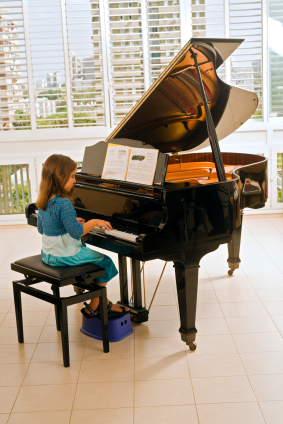Thoughts on Tiger Mom
/Tiger Mom is everywhere. Ever since the publication a couple of weeks ago of the now best-selling book Battle Hymn of the Tiger Mother, the author, Amy Chua, has been omnipresent—interviewed on TV news and talk shows, featured in a Wall Street Journal article, discussed all over the internet, and even featured on the cover of Time magazine.
The book, which extols the virtues of strict (some would say harsh and excessive) “Chinese parenting” over more permissive “Western parenting,” has ignited a firestorm of controversy. No wonder. Chu’s parenting rules for her two daughters, now both high-achieving teens (one’s a violin virtuoso, the other played the piano at Carnegie Hall when she was 14), include: no play dates, no sleepovers, no TV or computer games, no being in a school play (or complaining about not being in a school play!), no playing any other instrument than the violin or piano (or not playing either the violin or piano), no getting any grade less then an A, no being less than the #1 student in every subject except gym or drama—among other things. While the merit of some of these rules may be debated, it’s probably her tactics for enforcing them that have gotten even more attention. Stories of keeping a 7-year-old at the piano for hours without food, water, or bathroom breaks until she got a piece just right; of threatening to burn all her daughter’s stuffed animals if she didn’t practice; of throwing back in her face a birthday card one daughter had made for her because she knew it had been done carelessly and quickly; of calling her daughter “garbage” when she behaved disrespectfully. You get the gist.
But these attention-getting anecdotes (highly successful marketing tools no doubt) probably obscure her main message, which seem to be that kids need to be pushed to succeed—and will be happier in the end when they see how much they can do. She claims she drove her two daughters because she was preparing them for life. After all, that’s what her parents did—and now she’s a highly-educated professor at Yale Law School.
My purpose in telling you all this is not to critique the book—and certainly not to sell it! Rather, the “Tiger Mom” controversy has just gotten me thinking about some very important questions for us as moms. Let me share three with you very briefly:
First, what is our highest goal for our kids? Is it for them to become super-achievers in some field? Or is it that they grow up to love and serve God and others? Of course part of their love for God may include great achievement. But what is our highest goal? Kids know what matters most to us. For me, I can’t help but hear III John 4 here: “I have no greater joy than to know my children are walking in the truth.”
A second question: What do we hope will be the basis of their sense of worth and value? Chua claims that driving kids to do their best actually elevates their sense of worth and value. Conversely, when anything a child does is praised and rewarded no matter how little effort went into it, it’s de-motivating. There’s some truth here. Admittedly, the current American obsession with building kids’ self-esteem has become, in some cases, pretty crazy, with every child thinking he’s a genius and schools and teams completely eschewing any rewards for merit in favor of an “every child wins” philosophy. But as Christian parents, don’t we want our kids to find their worth in the redemptive love of Christ and in being sons and daughters of God? And, as they grow and develop, shouldn’t we be encouraging them to have a “sane estimate” of their abilities, as Romans 12:3 in the Philips paraphrase reminds us?
Perhaps the most important question of all: How much of how our kids turn out has anything to do with what we do—or don’t do—and how much is pure grace? It seems that in Chua’s parenting paradigm, children are clearly the product of their parents’ drive to make them “achievers” (as defined by the parents’ standards, of course). But isn’t each child a special creation of God, uniquely endowed with their own particular mix of gifts, challenges, personality, and passions? It seems to me that what we as moms want to do for our children is what a mentor of mine often described as “holding a crown over their heads and helping them grow into it.”
It’s always tricky, isn’t it, this balance between “works” and grace? Certainly what we do as moms profoundly impacts our children. But however we raise our children, they ultimately have the “terrible freedom” to choose to follow God—or not. And ultimately, aren’t we all living--really, when it comes down to it—by His grace alone?
I don’t know about you, but as I look at my own parenting—and the parenting of countless moms I know—all I can think is that “It’s grace. It’s all grace.” Certainly that doesn’t discount our giving parenting our very best efforts. We are called to do everything to the glory of God. But ultimately it’s by God’s grace that I am who I am as a mother—and my children are who they are.
In Chua’s world, it seems grace is in short supply. Not in ours, I hope.

